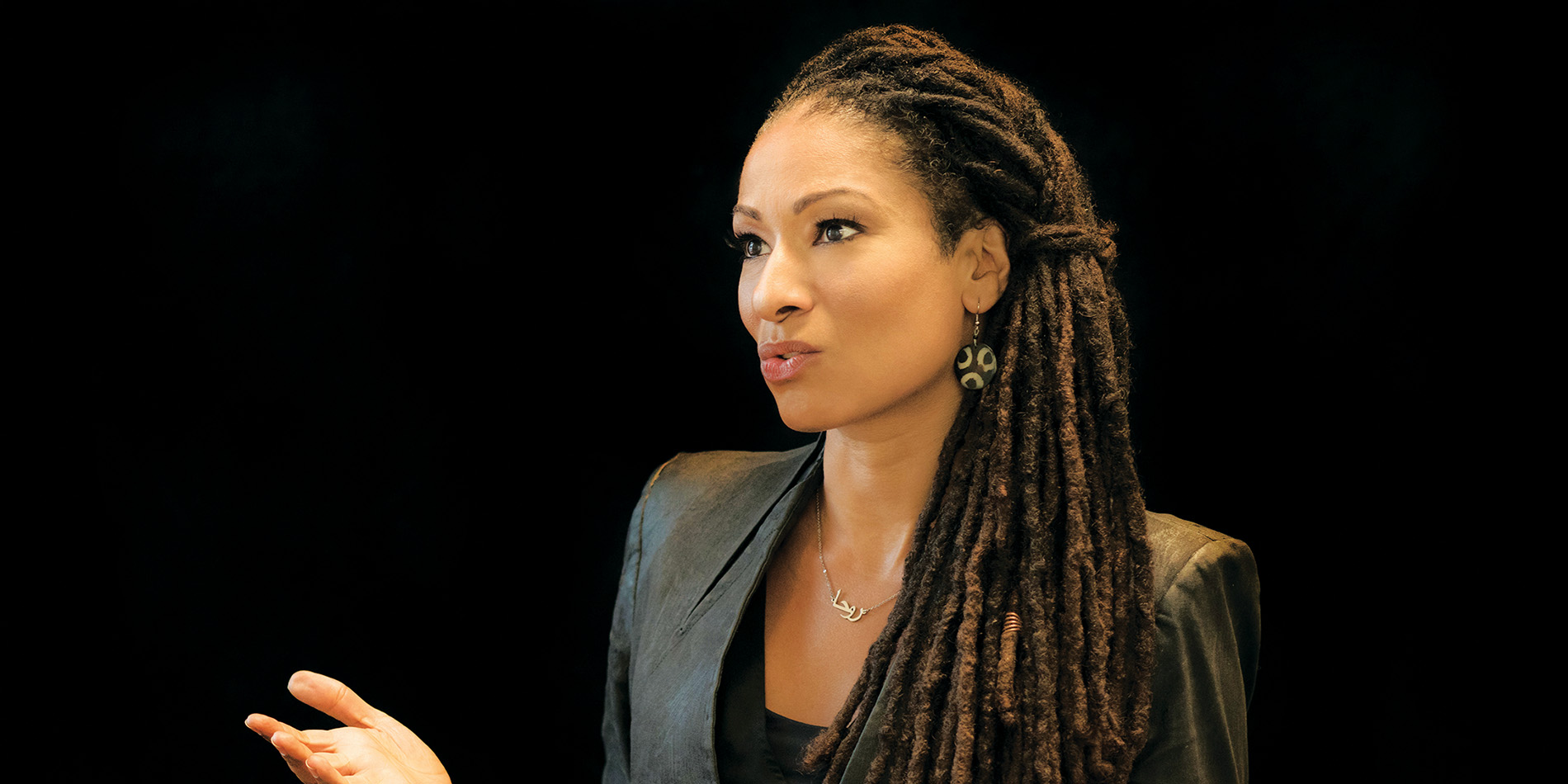Six Things We Learned from Ruha Benjamin
Don’t just break things—rebuild them
Ruha Benjamin wants us to reckon with the impossible. A world without prisons? Schools that foster the genius of every child? The self-described “ambivalent academic” chatted with undergraduates over dinner before an uplifting and wide-ranging conversation with SESP dean Bryan Brayboy.
“We need to remind ourselves how many times people have overturned things that seemed impossible to change,” said Benjamin, a sociologist and author, during the Nancy and Ray Loeschner Leadership Lecture at the Segal Visitors Center. “We don’t just have power in maintaining what’s bad. We also have power in eliciting and growing what we actually want.”
A professor of African American studies at Princeton University, Benjamin is known for her groundbreaking research on race, technology, and justice. Her latest book is Imagination: A Manifesto.
Benjamin left us thinking about the following:
Abolitionist thinking involves breaking apart and rebuilding. Benjamin’s recent books urge readers to question the status quo and think about new ways to approach inequities in healthcare, education, work settings, and more. “What do we want to uproot? What do we want to grow?” she asked. “That can apply to every area of our life—personal, political, and everything in between. Abolition is reckoning with what we consider impossible in our own minds.”
Keeping one foot in the academy and the other in the community changes the questions you ask. “It changes what I write about, how I write, how I’m thinking through things. It makes the work more joyful and makes me feel more purposeful.”
Giving up hope is a luxury. “If your life depends on the systems changing into something new, then hope is something you need,” she said, quoting James Baldwin: “I can’t be a pessimist, because I’m alive. To be a pessimist means that you have agreed that human life is an academic matter. So I’m forced to be an optimist. I’m forced to believe that we can survive whatever we must survive.”
Planting a seed is progress. “There was no evidence that slavery would ever end, but because it was unlivable, our ancestors resisted. Most didn’t see the end in their lifetime, but they inspired the next generation.”
Environment matters. “I need to be among people who have a collective mission beyond the academy, because that’s what I care about. One of my corny mantras is that we don’t need stars—we need a constellation.”
Hope is a discipline. “Keep yourself hopeful by shining a light on the things that are life-affirming and the places and people that are working to create a more habitable planet for everyone. As a teacher, I can’t just diagnose what’s wrong. I have to give students a sense of power to think ‘OK, what are you going to do about that?’”
